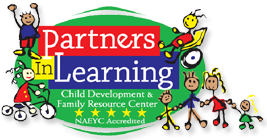 The keynote speaker featured Micah Fialka-Feldman in Through the Same Doors: Living a Fully Inclusive Life.
Micah shared his first-hand story of inclusion. Micah is 24 years old and one of the new wave of adults with
cognitive disabilities attending college. Since first grade, when he
told his parents he wanted to go in the same door as all of his friends,
he has been fully included in his school, community and now on a
college campus. He serves on the Project Advisory Committee for the
Center for Postsecondary Education for Students with Intellectual
Disabilities. You can also watch his award winning documentary, Through the Same Door: Inclusion
Includes College on youtube (http://www.youtube.com/watch?v=fWnCVd2cBpA). Currently Micah is engaged in fulfilling his dream to
live in the university dorm. Micah’s favorite quote is by Dan Wilkens,
“A community that excludes even one of its members is no community at
all.” Micah is committed to building community for himself and for
others.
The keynote speaker featured Micah Fialka-Feldman in Through the Same Doors: Living a Fully Inclusive Life.
Micah shared his first-hand story of inclusion. Micah is 24 years old and one of the new wave of adults with
cognitive disabilities attending college. Since first grade, when he
told his parents he wanted to go in the same door as all of his friends,
he has been fully included in his school, community and now on a
college campus. He serves on the Project Advisory Committee for the
Center for Postsecondary Education for Students with Intellectual
Disabilities. You can also watch his award winning documentary, Through the Same Door: Inclusion
Includes College on youtube (http://www.youtube.com/watch?v=fWnCVd2cBpA). Currently Micah is engaged in fulfilling his dream to
live in the university dorm. Micah’s favorite quote is by Dan Wilkens,
“A community that excludes even one of its members is no community at
all.” Micah is committed to building community for himself and for
others.Following the keynote, Janice Fialka, Micah's mother conducted a separate plenary session which I attended. She talked about theThe Dance of Partnership: Why Do My Feet Hurt? Strengthening the parent-professional partnership. During her presentation she discussed rethinking the word denial that professionals often use. She discussed how
parents are often judged solely from the professional’s perspective, the professional may not genuinely listen to or engage parents in a conversation about their dreams and hopes for their child. If professionals categorize parents as “in denial,” unaccepting, or difficult, professionals may lose the chance to understand and learn from the parents.
She discussed how parents and professionals often enter into a working relationship with different expectations and perspectives. Such differences affect how each partner perceives the next step in intervention. For many professionals, a label, diagnosis, and/or prognosis can give direction and insight to their work with a child. They can consider which intervention techniques work best with children with that particular diagnosis. They know what they expect to happen with the child. During the initial diagnosis and during transition periods, parents may not appreciate the importance of a diagnosis or label. To parents, labels may be like foreign words creating chaos and a sense of inadequacy. Parents may question the meaning of the diagnosis, unsure about how it might affect the future of their child and family. They may feel unprepared for this new twist in life, and wonder how to assimilate so much information at once.
Many parents and professionals have heard or used phrases such as, “that parent is in denial,” or “that father can’t face the reality of his child’s limitations,” or “that mother refuses to admit that her child won’ t be able to...." Sometimes when professionals use the phrase “in denial,” the implied message is that the parents are not being realistic in their expectations of what their child can or will be able to do. Professionals should be careful not to judge a family when the family does not want to do things the way the professionals think is best.
Professionals can reframe “in denial” as the parents’ way of being “in hope.”
They can help parents explore their dreams, hopes, and fears for their child. Professionals
can encourage the parents’ dedication to, determination, and high expectations for their child.
http://www.danceofpartnership.com/index.htm
They can help parents explore their dreams, hopes, and fears for their child. Professionals
can encourage the parents’ dedication to, determination, and high expectations for their child.
http://www.danceofpartnership.com/index.htm
Suggestions for professionals:
• Support parents’ hopes and dreams for their child.
• Suspend judgment of families and their behavior.
• Be patient. People need time to find their own personal way through unexpected events.
• View this time as an opportunity to strengthen trust.
• Educate other professionals and family members to rethink denial
Unfortunately, I have been a professional that fell into the "in denial" trap. I will forever more consider parents "in hope".
In Hope, Norma Honeycutt, Executive Director
Unfortunately, I have been a professional that fell into the "in denial" trap. I will forever more consider parents "in hope".
In Hope, Norma Honeycutt, Executive Director



No comments:
Post a Comment